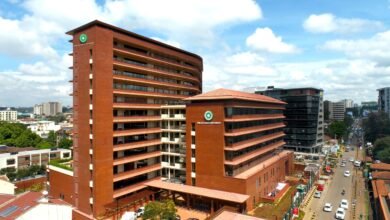
Egypt has announced its withdrawal from the negotiations on the Grand Ethiopian Renaissance Dam (GERD), a mega hydroelectric project that has been a source of tension among the Nile Basin countries for over a decade.
The move came after the fourth and final round of talks with Ethiopia and Sudan, held in Addis Ababa on Tuesday, failed to produce any agreement on the filling and operation of the dam.
Egypt’s Ministry of Irrigation and Water Resources said in a statement that the talks reached an impasse due to Ethiopia’s “persistent refusal to accept any of the technical or legal compromise solutions that would safeguard the interests of all three countries, including Addis Ababa itself.”
The ministry also accused Ethiopia of “backtracking on the previously agreed-upon understandings” and “exploiting the negotiation as a cover to solidify a fait accompli on the ground” by unilaterally completing the fourth phase of filling the GERD reservoir in September.
Egypt, which relies on the Nile for more than 90% of its water needs, fears that the dam will reduce its share of the river and threaten its water security and agricultural production.
Egypt’s annual per capita water availability is already below the international threshold of water scarcity, and is projected to decline further due to population growth and climate change.
GERD is the largest hydroelectric scheme in Africa but has been at the centre of a regional dispute ever since work first began in 2011.
The $4.2-billion project had been expected to produce more than 5,000 megawatts of electricity, more than doubling Ethiopia’s electricity output.Egypt has been seeking a legally binding agreement on the filling and operation of the dam that would guarantee a minimum annual flow of water to downstream countries and a mechanism for resolving disputes.
However, Ethiopia has rejected these demands, insisting on signing non-binding guidelines that can be modified at any time at its discretion.
Ethiopia, has also defended its right to use its water resources for its development needs, arguing that the dam will provide electricity to millions of its people and boost its economy. Ethiopia also claims that the dam will benefit downstream countries by regulating floods, reducing sedimentation, and enhancing regional cooperation.
Ethiopia’s Ministry of Foreign Affairs expressed its regret over Egypt’s decision to terminate the talks, saying that it was a “misrepresentation” of its positions and that it sought to address the major issues of difference and reach an amicable agreement.
The ministry also reaffirmed its willingness to resume the negotiation to reach “an amicable and negotiated” settlement that addresses the interests of the three countries.
GERD talks were revived in July 2023, after a meeting between Ethiopian Prime Minister Abiy Ahmed and Egyptian President Abdel Fattah el-Sisi in Cairo, where they agreed to finalize the agreement within four months.
The talks were held under the auspices of the African Union and the United States, which have been mediating the dispute since 2019.
However, the four rounds of talks, two in Cairo and two in Addis Ababa, did not bring the anticipated resolution.
Instead, the impasse took a turn for worse, raising the specter of a potential conflict over the Nile, the world’s longest river and a lifeline for millions of people in the region.





